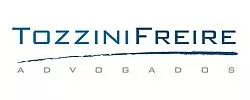The enactment of the Law no. 12,846/2013, better known as the "Anti-corruption Law", introduces administrative and civil liability on legal entities for illicit acts practiced against local and foreign Public Administration.
The new Anti-corruption Law may be enforced against corporate entities that engage in corruption of public officials and fraudulent practices in connection with public tenders and government contracts. The law also prohibits companies from frustrating or defrauding the public tender process in any way, gaining an undue advantage or benefit from fraudulent modifications or manipulations of government contracts, or hindering the government's investigation or auditing activities.
Another important device introduced by the law is the strict liability of legal entities in the civil and administrative levels, for acts of corruption committed in their interest or benefit. Therefore, the company can be held liable regardless of the liability of the individuals involved, without the need to prove that the management or directors had a corrupt intent.
Liability of the legal entity shall not exclude the personal liability of its directors, officers, or any individual who has directly contributed to the illegal act.
With respect to the administrative sanctions, legal entities may be fined up to 20% of the entity's gross revenues in the year prior to that in which the administrative proceeding is initiated, or even up to R$ 60 million in circumstances in which it is not possible to calculate gross revenues. Other administrative sanction includes publication of the condemnatory decision on media of wide circulation.
Regarding judicial sanctions, they include loss of assets, rights and valuables, suspension or partial interdiction of company's activities, and prohibition to receive incentives, grants, donations or financing from public entities and financial institutions owned or controlled by the government, for a period of 1 to 5 years. The law also provides for mechanisms to avoid that new legal entities incorporated by the shareholders of previously punished entities, contract with the Public Administration.
Controlling, controlled, affiliates or companies in consortium shall be jointly liable for the practice of acts prohibited by the new law, being such joint liability limited to the obligation to pay fines and full restitution of the damage caused.
Another important provision is the possibility of the Public Administration to enter into leniency agreements with companies that collaborate effectively with the investigations. Entering into a leniency agreement will result in a reduction or exemption of certain sanctions. The purpose of this provision is to encourage voluntary self-reporting by companies.
It is worth noting that the new Anti-corruption Law encourages the effective application of codes of ethic/conduct and the existence of mechanisms and internal procedures of integrity, auditing and incentives to report irregularities, in other words, the implementation of compliance programs, since the existence of these mechanisms will be taken into account by the government when applying the administrative sanctions. It is expected, therefore, that companies with compliance programs will be benefited.
The new law was published on the official gazette on August 2, 2013 and will become effective 180 days as of this date.
The content of this article is intended to provide a general guide to the subject matter. Specialist advice should be sought about your specific circumstances.


